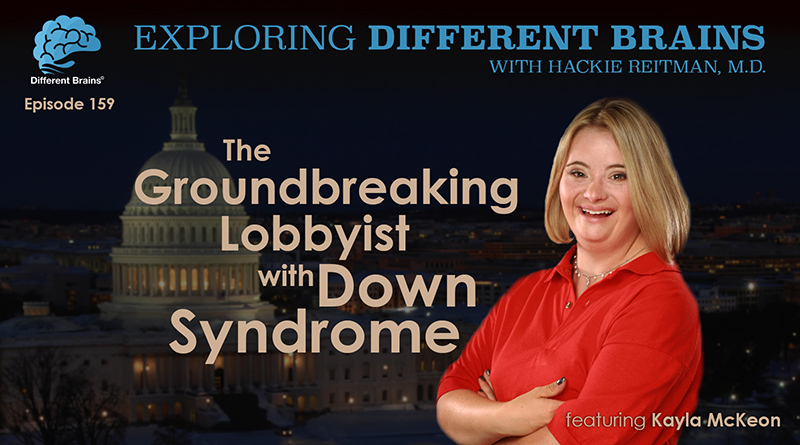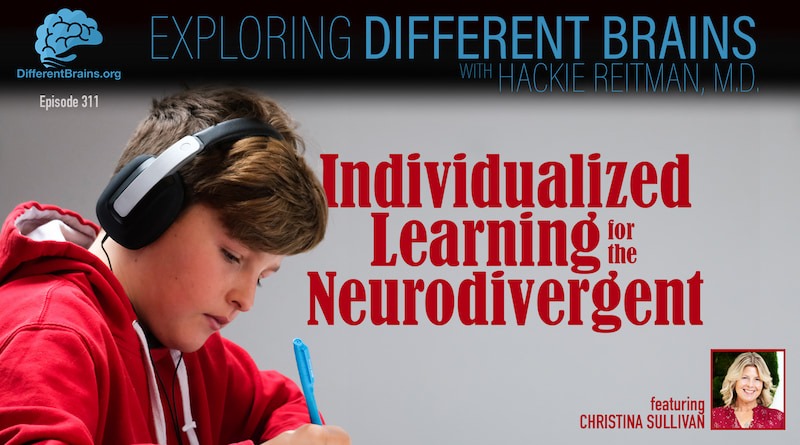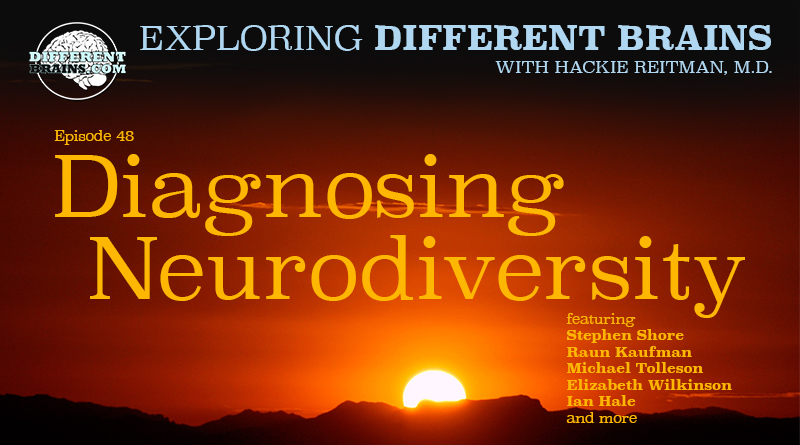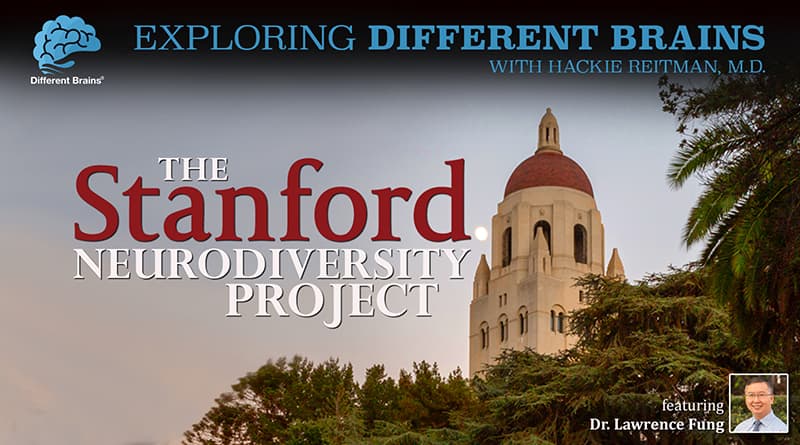
The Groundbreaking Lobbyist with Down Syndrome, featuring Kayla McKeon | EDB 159
In this episode, Dr. Hackie Reitman speaks with Kayla McKeon, the first lobbyist in Washington, DC with Down syndrome.
(16 minutes) Kayla is the Manager of Grassroots Advocacy for the National Down Syndrome Society, a human rights organization for all individuals with Down syndrome. Join Hackie and Kayla as they talk about Kayla’s life growing up, her experiences as a Washington lobbyist, and what she feels the public doesn’t understand about people with Down syndrome.
For more information about the NDSS visit: NDSS.org
And for Kayla’s blog, visit: kaylamckeon.com
Be sure to look for Kayla and Hackie presenting at the 2nd annual NDSS Down Syndrome Adult Summit coming to Detroit, Michigan April 4 – 6, 2019. Click here for more info!
To listen or download the podcast version of this episode, see the embedded player below.
Or look for us on your favorite podcast provider:
iTunes | Stitcher | SoundCloud
FULL TRANSCRIPT:
HACKIE REITMAN, M.D. (HR): Hi, I’m Dr. Hackie Reitman, welcome to another episode of Exploring Different Brains, and today, I’m very excited to have as our guest, Kayla McKeon, who I met down in Washington DC at the first-ever adults Summit for Down Syndrome. Kayla McEwen has the rare distinction of being the one and only lobbyist in Washington DC, who also happens to have Down syndrome. So, she’s the manager of the Grassroots advocacy for the National Down Syndrome Society, the NDSS, and we’re so lucky to have you with different brains. Welcome, Kayla!
KAYLA McKEON (KM): Hi, welcome and thank you very much for having me, I’m very excited!
Introducing Kayla McKeon
HR: Well we’re very excited to have you! Now, why don’t you introduce yourself to the audience the way you like to tell about yourself.
KM: Sounds great! Good morning, my name is Kayla McKeon, and I live with my parents, Patty and Mark, and my dog, Bella, sorry for the barking. I am very involved in my church community, I attend Sacred Heart Church in Cicero, I am very involved in Special Olympics and I play many sports each season, and I love my iPad; I love to travel, I really love reading because I can read a book a week, and I love reading books like mysteries, like Dave Patterson, David Baldacci, and Mary Hence Clark, a couple of my favorites.
HR: Wow, you’re quite the reader!
KM: I am, and I my favorite TV show is Law and Order SVU, and so my parents found them, found out they were taping in New York City a couple of years ago, so I got to meet Ice T, and I think his name is Peter Scanavino, it was really cool!
Becoming a Lobbyist
HR: How did you become a lobbyist?
KM: I love that question! and actually lobbying found me, when I started motivational speaking, when I went- when I go to school elementary schools and middle schools, colleges to talk to future teachers and assistants, and colleges… I love it; And of course Special Olympics and where I am today; I volunteered at the National Down Syndrome Society and going up to the hill and lobbying a couple of days a year, and I lobbied my own New York segmental for the – we talked about all the- so I was at baseball game with my parents, and I met candidate Don Campco and he came up and gave me a shirt, which is pretty cool, and the next time I met him was at a church festival, they gave me his business card, so I handed him mine, and he said that if he was elected, that he wanted me to come and intern for him. So he won the election and I interned for him for two years and I did various office work and attended events on his behalf. And one of the- he asked me to go to an event with him, to attend a round table event, talking about disabilities and employment, and unknown to me the host of the event was the National Down Syndrome Society, so I always like to say that congressman Don Campco got me my job at NDSS because at the end of the meeting, there was- we are all presidency, asked me to come and work for them as the first registered lobbyist down syndrome, and I’ve been working with them since 2017, October of 2017.
About the NDSS
HR: Can you tell our audience about the National Down Syndrome Society and what you do there?
KM: Sure! The National Down Syndrome Society is the leading human rights organization for all individuals with Down Syndrome, and I am the manager of Grassroots Advocacy and I am the first registered lobbyist with Down Syndrome, and I go on Capital Hill to help pass laws for those of us that are differently abled.
HR: Well, so many of us have different brains, don’t we?
KM: We do.
HR: What is it like meeting with leaders in Washington DC?
KM: Well doctor, just like talking with you! Because we all wear our pants same way, so and I love meeting new people, and I never get nervous or intimidated, but my parents feel that way- I don’t.
HR: Do you have any personal favorites up on Capital Hill?
KM: I met with former Speaker of the House Paul Ryan, but apparently it was just a photo op. But I loved meeting with Congress woman Cathy McMorris Rodgers and she is from Washington State and she was very very instrumental in helping pass the Able Act, and she has a son with Down Syndrome.
The Able Act
HR: Wow, can you explain to our audience who might not know here at different brains what the Able Act is?
KM: Sure, the Able Act is where we can save money into our accounts without exceeding, I believe it’s $2,000, please don’t quote me on the numbers, I’m always not positive, but it’s where we can save money into our accounts, and I have mine here in New York.
HR: I’m excited because I’ll be one of the keynote speakers out in Detroit, along with you and, tell us about the upcoming NDSS Adult Down Syndrome Summit in Detroit this April.
KM: Definitely, so we have the our adult summit on April 4th through the 7th…6th, excuse me, and we talk about Down Syndrome across the lifespan, where we talk about employment, education, community integration, and Healthcare and research, and though another, and they are couple of our pillars, where we go more in depth talking about housing, about why employment is so important to us.
Competing in the Special Olympics
HR: Can you share some of your experiences with the World Games and the Special Olympics?
KM: Sure! I love that question, thank you! Remember, I’ve been involved with Special Olympics for numerous years, and I play many many sports, if I have to pick my top two favorites, it has to be floor hockey and bocce. Floor Hockey because I am the goalie and I get to smack talk to the bigger guys on the other team and it kind of throws them off guard. But I love bocce ball, because I went to Athens Greece in 2011, and I climbed to the top of the acropolis, I shopped down the Pláka, it was amazing! I was – I went to the island of Lotos, so I could get acclimated to the Greek culture and food, and I just absolutely loved it because I was able to bring home a silver and bronze medal in competition.
HR: Well, congratulations!
KM: Thank you.
HR: I was never smart enough playing Bocce with all that blocking and everything I just like to throw it (chuckles).
KM: I love it, my parents are head coaches so I get more training.
Kayla’s Korner
HR: Oh, good. Now Kayla you have a very popular podcast called Kayla’s Korner, can you tell us about that?
KM: Sure, I love Kayla’s Korner, because it’s where we talk to members of Congress, CEOs of companies like say Hot Wheels or NDSS and Tim Fragrams from Special Olympics, and self advocates because we have many issues facing us today that we talk about the issues facing us. their perspective on life, and I love talking to them because is it many many individuals and they love being on my podcast. Speaking of which I would love to do an interview with you!
HR: I’ll tell you what, when I was lucky enough to be down there in Washington DC with you guys, and all of us were there at the the first-ever adult’s Summit for Down Syndrome, it was amazing to me how you and the other self-advocates were truly so talented and so I mean everything about you are, I mean you guys dressed better than me, you could you talk better than me much of the time, and when you guys give a talk like your talk I remember was just out of this world and I-
KM: Thank you!
HR: -and I look forward to your speaking in Detroit in April.
KM: Definitely looking forward.
HR: Tell us, Kayla, what is one great misconception about Down syndrome that you’d like to tell our audience that they might have the wrong idea about.
KM: Well, there’s just one, I’m just kidding! But the biggest one would be that we are not capable of doing anything; but you don’t have to look far, because people with Down Syndrome are doing the same thing as everyone else. Did you see that young lady golfer that was able to make it past a sand trap? That had to be difficult; and- or John Cronin from John’s crazy socks, he owns a multi-million dollar company with his dad, and he’s a multi-millionaire! And we are holding down everyday jobs, and we are ready and willing and able to walk and have a career because we can drive a car, we can go to college, and we don’t want to be paid pennies to do the same job as somebody else. we are living proof of that.
HR: Well that’s- thanks for clearing that up!
KM: Definitely!
HR: How can our audience learn more about you, Kayla?
KM: Sure! If you go to www.ndss.org and you, I believe is an RNJ button, where you can find Kayla’s Korner, where you can read my take on my blog and hear my podcast.
HR: Well, that’s great. And Sarah Hart Weir and all of your great leaders there are doing a wonderful job you’re really doing. I wanted to ask you about the- because I was a little bit confused about where the law stands on minimum wage for those who might be disabled.
KM: Sure! I know exactly what you mean. People like me are still getting paid pennies per hour, and that is not fair, so we call this section 14c, that wants to be set out in the next 6 years but we wanna get paid just like everybody else, because we are like everybody else, and we want to get paid for doing what is fair. And people getting paid below minimum wage, as you can tell, there is a minimum wage. So we’re trying to end that.
HR: Now the law, there was the law for that and then it got reversed is that correct?
KM: I’m not sure exactly, but I know we’re trying to phase out section 14c and we want to end sub minimum wage, like we are ending Law Syndrome.
HR: Now I had the great rare honor and privilege of meeting briefly to discuss such problems with former President George H Bush some years ago. He signed – was it he that signed the Americans with Disabilities Act? What’s the clear cut hist-
KM: Yeah I think so.
HR: What is the biggest challenge that you and your fellow lobbyists for people with special abilities and those of us with different brains, what’s the biggest challenge you’re running into?
KM: There are many challenges of course, but we want accessibility in the workforce, and places where we can get in, and make them accessible for wheelchairs and walker, because not every place has a ramp to walk into a set place.
HR: Okay, when I speak to the audience in Detroit where you’ll be speaking also, I want to include a clip from you, and what’s the one thing you’d like me to emphasize in my talk from you today, to the audience in Detroit?
KM: That we can do anything we set our minds to, and that we are living proof that we can do anything: We can go to college, we can drive a car, and put these misconceptions behind us.
HR: Well that’s great and very inspirational. Kayla has been a pleasure speaking with you today on today’s episode of Exploring Different Brains. Thank you so much for spending the time with us and we look forward to having you back.
KM: Definitely, and thank you for having me! I really appreciate all your hard work.
[/expand]



